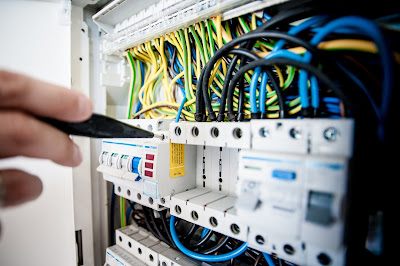If you want to provide the right ventilating, heating,
and air-conditioning, your electricity bill will go up 20-40%. A proper HVACsystem is important for maintaining a healthy and comfortable interior
environment. However, several homeowners look for strategies for reducing their
energy cost without the need to sacrifice on the house environment. Here is how
to reduce energy bills while enhancing your HVAC system performance.
 |
| Image Courtesy: Pixabay |
Load
Reduction
Load reduction is one of the primary steps for
achieving HVAC and energy system optimization. This step usually comprises of a
long-range plan that itemizes actions needed to be taken for best return on
investment. Decreasing the load on your building helps the HVAC system function
more efficiently.
Here are a few load reduction techniques:
- Add extra insulation and tighten the shell of the building. Extra insulation in a building could be a little difficult in certain cases, so it is best to aim towards the exterior shell, particularly doors and windows.
- Installation
of windows that are energy-efficient. This can work very well for buildings
with single pane windows. Double pane windows that have a thermal break are
known to be one of the best ROI.
- Lighting
system upgrade. For maintaining proper levels of lighting, an average
building has 2-3 watts of lighting density per square foot. This is one of
the biggest reasons for load on an HVAC system. Accent lighting are extremely
energy inefficient and must not be used if one wishes to decrease HVAC and
energy costs. Lighting systems that are energy-efficient release less heat
inside conditioned space when compared to older incandescent technology.
- Choose
efficient electronic devices and equipment that have power saver option.
This will assist in decreasing sensible heat gain within a space. Things
to consider are, kitchen equipment, refrigerators and computers.
HVAC
Systems
Another step for achieving HVAC system and
energy optimization is understanding your system well. Your system is important
for your interior environment. At the same time, it also is a big reason for
your bill. In case you have a unit, which is older than 13 years, it is best
that you decide for an upgrade. Systems that are well maintained have an
expectancy of approximately 15 years but they seem to disappoint at the wrong
times. Make sure you keep a replacement plan handy for the day the unit fails.
Few
tips: HVAC System:
Look for a certified consultant who you can trust.
In case you are a house owner, look for a good mechanic or company for evaluating
and maintaining the system.
Calculate the HVAC load. You can make use of
ACCA's calculation method.
Choose equipment which is sized for your load.
Do not buy something that is oversize. Also, you will have to pay more to buy big
equipment and also to operate it. Get the equipment and load selection right from
the very beginning.
With all these tips you can rest assured that
you can make your HVAC and your home energy efficient. However, make sure you
choose the services of a reputed HVAC expert for advice.

No comments:
Post a Comment